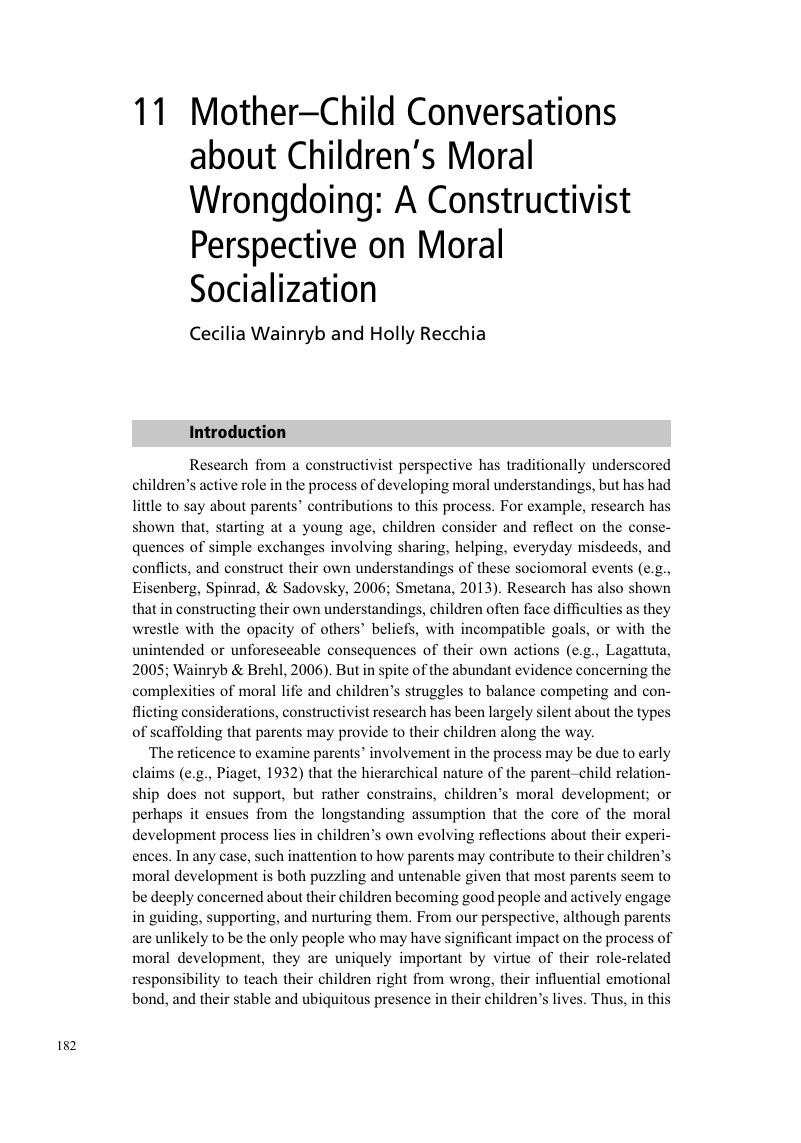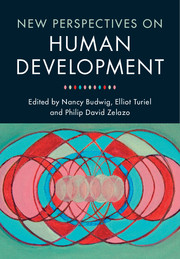Book contents
- New Perspectives on Human Development
- New Perspectives on Human Development
- Copyright page
- Contents
- Figures
- Maps
- Tables
- Contributors
- Preface
- 1 Developmental Processes, Levels of Analysis, and Ways of Knowing: New Perspectives on Human Development
- Part I Cognitive Development
- Part II Social Development
- 9 Gender Development: A Constructivist-Ecological Perspective
- 10 A Domains-of-Socialization Perspective on Children’s Social Development
- 11 Mother–Child Conversations about Children’s Moral Wrongdoing: A Constructivist Perspective on Moral Socialization
- 12 Development in the Moral Domain: Coordination and the Need to Consider Other Domains of Social Reasoning
- 13 Resistance to Dehumanization during Childhood and Adolescence: A Developmental and Contextual Process
- 14 Racialized Learning Ecologies: Understanding Race as a Key Feature of Learning and Developmental Processes in Schools
- 15 Privilege and Critical Race Perspectives’ Intersectional Contributions to a Systems Theory of Human Development
- 16 Social Intelligence in a Multicultural World: What Is It? Who Needs It? How Does It Develop?
- 17 Cultural Neuroscience of the Developing Brain in Adolescence
- Part III Language and Communicative Development
- Index
- References
11 - Mother–Child Conversations about Children’s Moral Wrongdoing: A Constructivist Perspective on Moral Socialization
from Part II - Social Development
Published online by Cambridge University Press: 11 May 2017
- New Perspectives on Human Development
- New Perspectives on Human Development
- Copyright page
- Contents
- Figures
- Maps
- Tables
- Contributors
- Preface
- 1 Developmental Processes, Levels of Analysis, and Ways of Knowing: New Perspectives on Human Development
- Part I Cognitive Development
- Part II Social Development
- 9 Gender Development: A Constructivist-Ecological Perspective
- 10 A Domains-of-Socialization Perspective on Children’s Social Development
- 11 Mother–Child Conversations about Children’s Moral Wrongdoing: A Constructivist Perspective on Moral Socialization
- 12 Development in the Moral Domain: Coordination and the Need to Consider Other Domains of Social Reasoning
- 13 Resistance to Dehumanization during Childhood and Adolescence: A Developmental and Contextual Process
- 14 Racialized Learning Ecologies: Understanding Race as a Key Feature of Learning and Developmental Processes in Schools
- 15 Privilege and Critical Race Perspectives’ Intersectional Contributions to a Systems Theory of Human Development
- 16 Social Intelligence in a Multicultural World: What Is It? Who Needs It? How Does It Develop?
- 17 Cultural Neuroscience of the Developing Brain in Adolescence
- Part III Language and Communicative Development
- Index
- References
Summary

- Type
- Chapter
- Information
- New Perspectives on Human Development , pp. 182 - 208Publisher: Cambridge University PressPrint publication year: 2017
References
- 6
- Cited by



